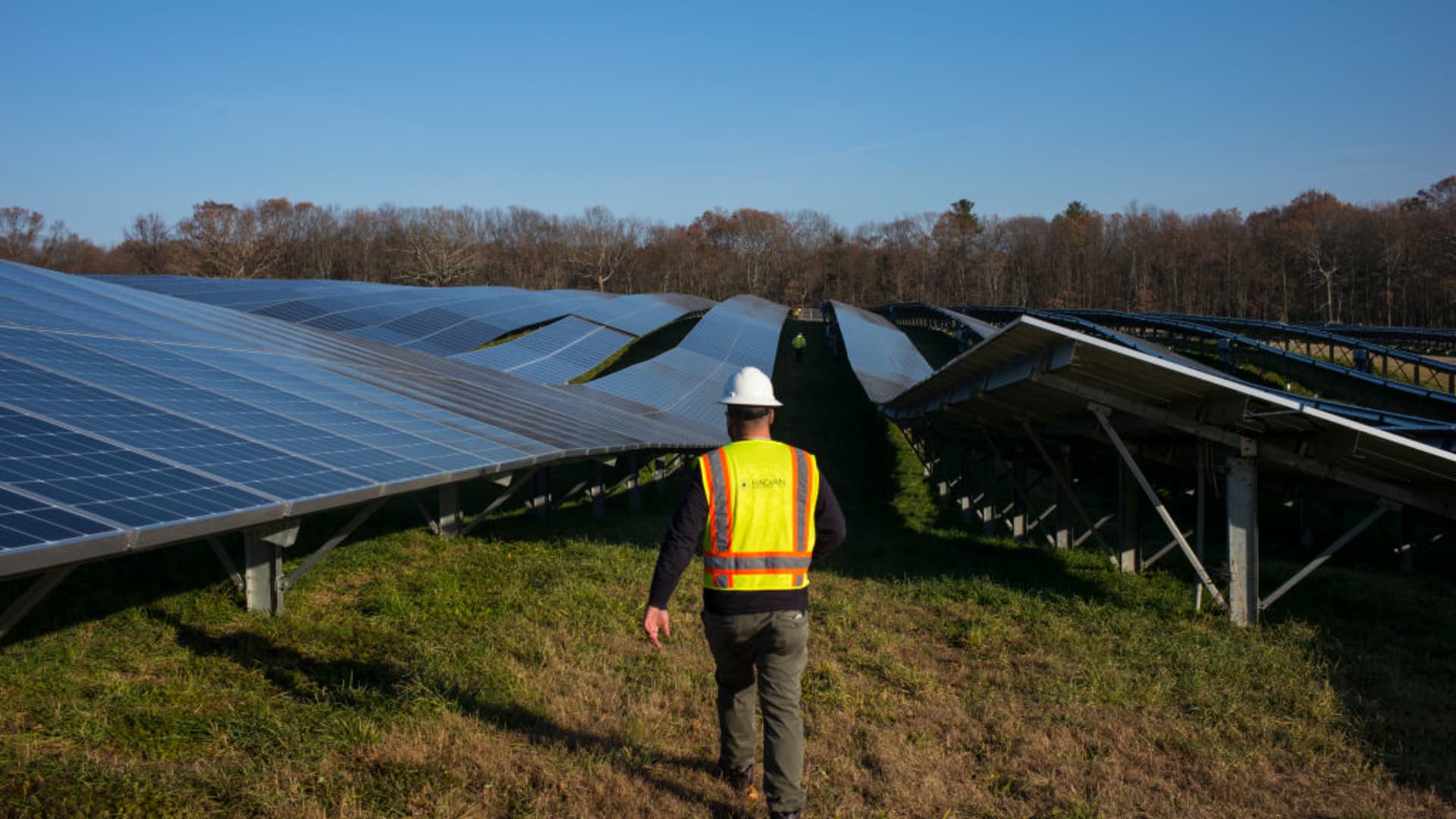Energy
Monday, November 27th, 2023 4:09 pm EDT
Key Points
- World Energy GH2’s Hydrogen Project in Newfoundland: World Energy GH2, an affiliate of Boston-based World Energy LLC, is set to build three wind farms and a hydrogen processing plant in and around Stephenville, Newfoundland and Labrador. The project aims to produce hydrogen by 2025, with plans to ramp up production to 250,000 tonnes per year. The hydrogen will be converted into ammonia and shipped overseas for various applications, including supplying retrofitted coal plants or selling to local businesses transitioning from fossil fuels. World Energy GH2 claims this will be the first commercial green hydrogen/ammonia production project in Canada.
- Hydrogen as a Clean Alternative and Canada’s Role: Hydrogen gas is considered a clean alternative to natural gas, emitting no carbon dioxide when burned or used in fuel cells, especially when converted to ammonia. Canada has committed to being net-zero by 2050, and the federal government has released a Hydrogen Strategy for Canada, promising approximately $17 billion in hydrogen tax credits over five years. The demand for hydrogen is soaring globally, and Canada, already a top-10 global producer, has a significant opportunity to be a first mover in the hydrogen industry. Hydrogen is seen as crucial for achieving net-zero emissions, and BloombergNEF estimates it could meet up to 25% of the world’s energy needs by 2050.
- Applications and Challenges in the Hydrogen Industry: Hydrogen finds applications in heavy manufacturing, chemicals production, and is anticipated to be an early adopter in the shipping industry, particularly for deep-sea shipping. While batteries are suitable for cars, hydrogen is considered more viable for heavy ships and vehicles. Canada’s surplus electricity, particularly from renewables, can be packaged as hydrogen or ammonia and exported globally. However, there are challenges, including the risk of falling behind other countries, limited funding, regulatory hurdles, and concerns that Canadian companies might provide components and expertise rather than leading projects. Despite these challenges, there is a belief in the potential for Canadian companies to benefit from a global undersupply of hydrogen over the next five to ten years, provided they can move swiftly to market. The need for rapid adaptation is emphasized to maintain Canada’s competitive position in the hydrogen industry.
World Energy GH2 Inc., an affiliate of Boston-based World Energy LLC, is embarking on a project to build three wind farms and a hydrogen processing plant in Stephenville, Newfoundland and Labrador. The company has secured land for the project, which aims to produce green hydrogen converted into ammonia. This hydrogen/ammonia production, slated to begin by 2025, is set to make World Energy GH2 the first commercial producer of green hydrogen/ammonia in Canada. The hydrogen will be utilized in various applications, including supplying retrofitted coal plants and local businesses transitioning from fossil fuels. This initiative aligns with Canada’s commitment to achieving net-zero emissions by 2050, and the federal government’s Hydrogen Strategy for Canada, which includes significant financial support for hydrogen projects. The project also reflects the growing global interest in hydrogen as a clean energy alternative, with Canada positioned as a key player. However, there are concerns about the risk of falling behind other countries in the hydrogen industry. The project in Newfoundland is part of a broader trend in Canada, with various hydrogen-related initiatives and investments, such as Ballard Power Systems and HTEC in Vancouver, EverWind Fuels in Nova Scotia, Air Products in Edmonton, and TESCanada H2 in Quebec. While Canada has the potential to be a major player in the hydrogen industry, challenges such as limited funding, regulatory hurdles, and competition from the United States pose risks. The U.S. government has implemented tax credits and invested in hydrogen hubs, potentially accelerating the growth of the hydrogen industry in the United States. The success of Canadian companies may hinge on their ability to overcome challenges, capitalize on government support, and navigate the evolving dynamics of the global hydrogen market. World Energy GH2 emphasizes the need for speed in the industry, pointing out the global undersupply of hydrogen expected over the next five to ten years, presenting an opportunity for Canadian companies if they can swiftly bring their projects to market.
For the full original article in The Globe and Mail, please click here: https://www.theglobeandmail.com/business/article-hydrogen-a-big-piece-of-the-clean-energy-puzzle/?utm_source=Shared+Article+Sent+to+User&utm_medium=E-mail:+Newsletters+/+E-Blasts+/+etc.&utm_campaign=Shared+Web+Article+Links



